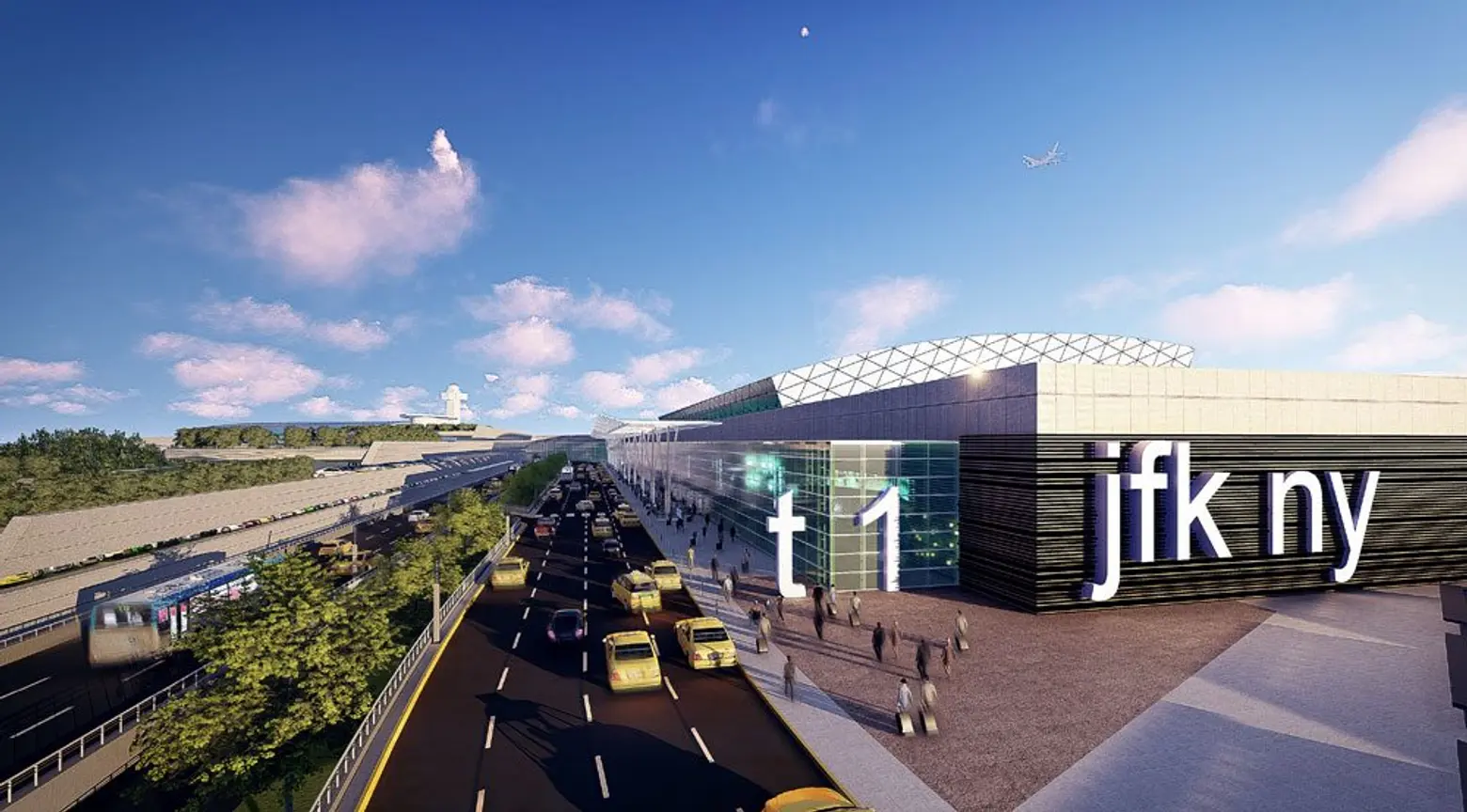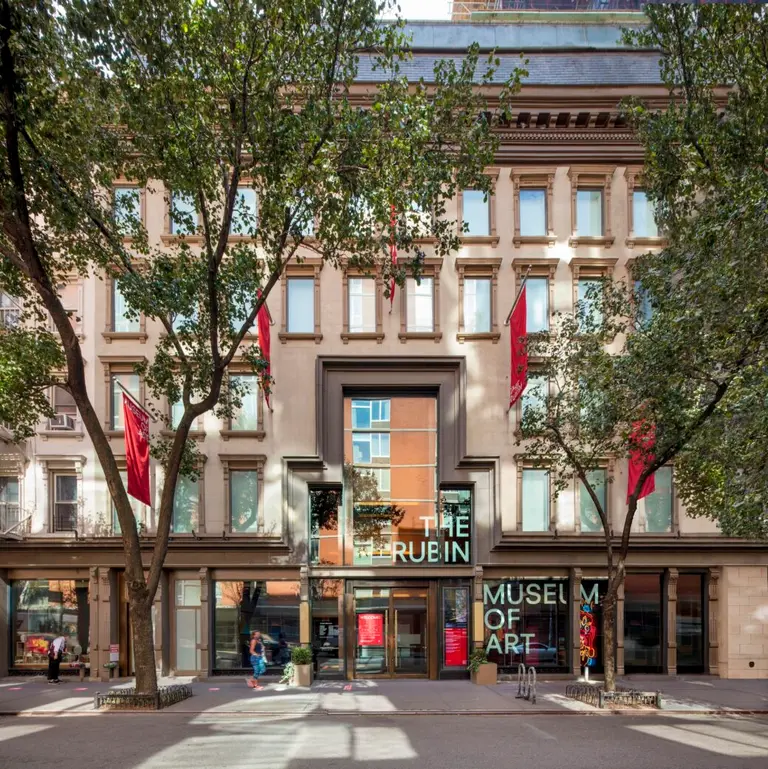Port Authority approves $355M project to rehab JFK runway and add a ‘high-speed taxiway’

Photo via Gov. Andrew Cuomo’s office
The Port Authority’s Board of Commissioners approved on Friday a $355 million plan to rehabilitate a key runway at John F. Kennedy Airport and add a new high-speed taxiway. The 10,000-foot-long runway, or 13L-31R, that will get the revamp handles nearly half of all planes arriving at JFK. This runway, one of four at the airport, will close between April and the end of 2019.
“Runway rehabilitation is an essential part of the Port Authority’s state-of-good-repair initiatives at its airports and our continuing efforts to ensure world-class operations,” Port Authority Chairman Kevin O’Toole said. “This infrastructure investment will enhance the efficiency of aircraft movements on the ground, while the use of concrete will shorten the project’s timetable and increase the lifespan of the runway.”
First announced early last year, Gov. Andrew Cuomo’s $10 billion plan to overhaul JFK Airport with new terminals and modern amenities does not include constructing a new runway, despite a record number of visitors. In 2017, the airport served 59 million passengers compared to 48 million passengers in 2008, a 23 percent increase, according to Port Authority data, the WSJ reported on Monday.
Typically, construction of a new runway faces public backlash because of the significant air and noise pollution it creates and because of the billions of dollars it costs. Plus, the new runway would have to be built over the estuary of Jamaica Bay.
The Regional Plan Association (RPA) in June recommended building two new runways at JFK because of the surge in passengers. The growth at the airport has “led to growth in jobs at and around the airport, contributing to the economic revival of Jamaica,” the study read. But so far, the Port Authority has no plans to add another runway.
According to the agency, the runway work will generate over 1,800 jobs and create nearly $385 million in economic activity over the lifetime of the project. The high-speed taxiway is aimed at improving the efficiency of operations and reducing runway occupancy time by nearly six seconds on average. Passengers could be saved about 1,000 hours annually in delays and taxiing time, according to the Port Authority.
RELATED:




























